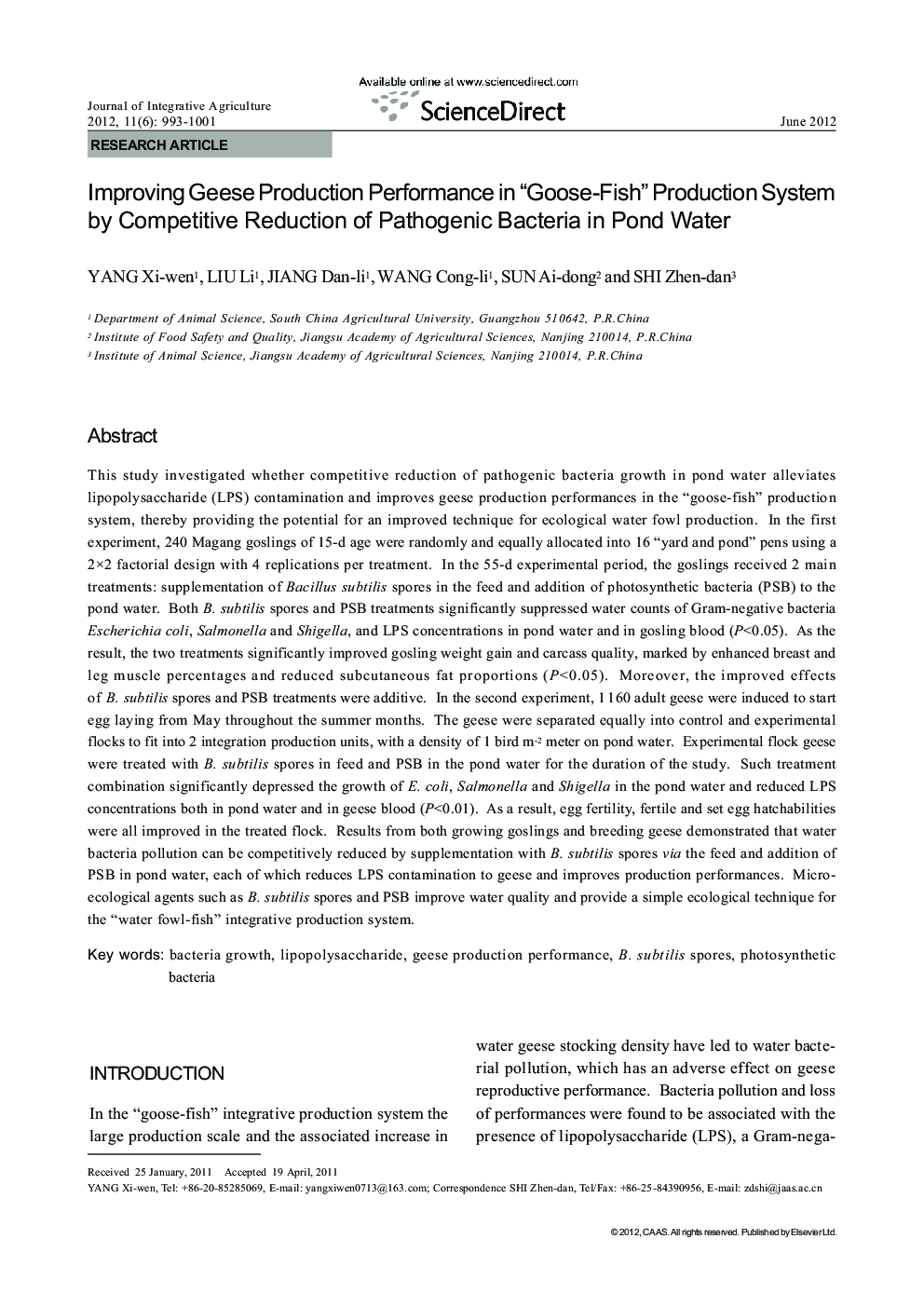| Article ID | Journal | Published Year | Pages | File Type |
|---|---|---|---|---|
| 4495153 | Journal of Integrative Agriculture | 2012 | 9 Pages |
This study investigated whether competitive reduction of pathogenic bacteria growth in pond water alleviates lipopolysaccharide (LPS) contamination and improves geese production performances in the “goose-fish” production system, thereby providing the potential for an improved technique for ecological water fowl production. In the first experiment, 240 Magang goslings of 15-d age were randomly and equally allocated into 16 “yard and pond” pens using a 2×2 factorial design with 4 replications per treatment. In the 55-d experimental period, the goslings received 2 main treatments: supplementation of Bacillus subtilis spores in the feed and addition of photosynthetic bacteria (PSB) to the pond water. Both B. subtilis spores and PSB treatments significantly suppressed water counts of Gram-negative bacteria Escherichia coli, Salmonella and Shigella, and LPS concentrations in pond water and in gosling blood (P<0.05). As the result, the two treatments significantly improved gosling weight gain and carcass quality, marked by enhanced breast and leg muscle percentages and reduced subcutaneous fat proportions (P<0.05). Moreover, the improved effects of B. subtilis spores and PSB treatments were additive. In the second experiment, 1160 adult geese were induced to start egg laying from May throughout the summer months. The geese were separated equally into control and experimental flocks to fit into 2 integration production units, with a density of 1 bird m−2 meter on pond water. Experimental flock geese were treated with B. subtilis spores in feed and PSB in the pond water for the duration of the study. Such treatment combination significantly depressed the growth of E. coli, Salmonella and Shigella in the pond water and reduced LPS concentrations both in pond water and in geese blood (P<0.01). As a result, egg fertility, fertile and set egg hatchabilities were all improved in the treated flock. Results from both growing goslings and breeding geese demonstrated that water bacteria pollution can be competitively reduced by supplementation with B. subtilis spores via the feed and addition of PSB in pond water, each of which reduces LPS contamination to geese and improves production performances. Micro-ecological agents such as B. subtilis spores and PSB improve water quality and provide a simple ecological technique for the “water fowl-fish” integrative production system.
